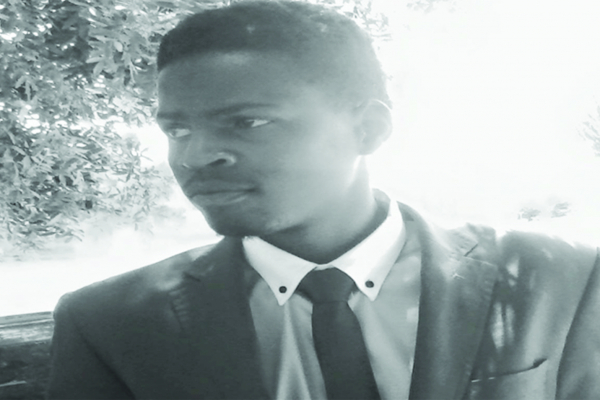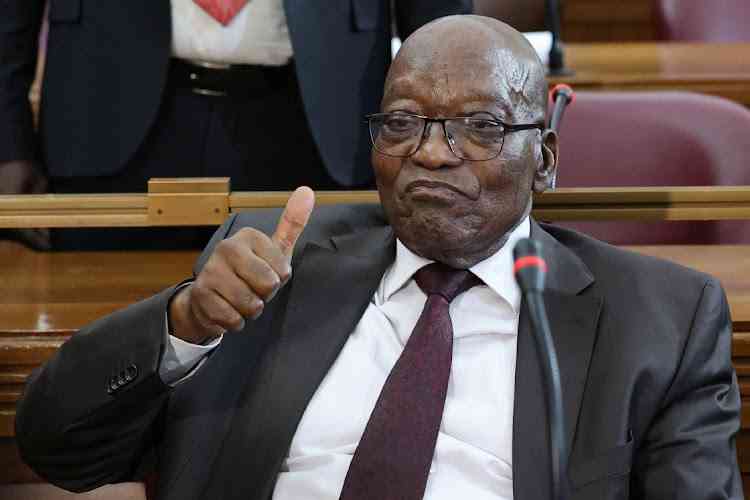
In what can be regarded as the battle for Kwekwe, prominent Zanu PF “godfathers” of illegal gold mining in Kwekwe have invaded the political arena with much controversy.
By Roy Muroyi
The “godfathers” of illegal gold mining were practically buying votes for their primaries with hard cash that normal citizens cannot get from the banks.
The past weeks saw a video of Owen Ncube, popularly known as Mudha in the illegal gold mining circles in Kwekwe, giving money to potential Zanu PF primary elections voters.
Mudha is the current Minister of State in the Midlands province, a feared renegade who owns a multiple number of gold claims around the city of Kwekwe.
It is rather unfortunate that government ministers are still abusing the offices even under the new dispensation.
One can only wonder how possible it is that one would get so much cash to practically distribute to members of a political party in a bid to buy votes.
Capitalism has enveloped the revolutionary movement yet again, those that are at the top are still being treated as royalty, the same system that President Emmerson Mnangagwa and the military claimed to have removed when they unconstitutionally removed his predecessor Robert Mugabe from power.
- Chamisa under fire over US$120K donation
- Mavhunga puts DeMbare into Chibuku quarterfinals
- Pension funds bet on Cabora Bassa oilfields
- Councils defy govt fire tender directive
Keep Reading
A number of political reasons are currently causing Zanu PF candidates to buy votes in Zimbabwe.
These include the betrayal of the people by current leaders, poverty, and rampant corruption at top levels of leadership.
There are also many economic explanations behind candidates buying of votes in Zanu PF.
The political candidates know that people were in dire need for money. Because of the current cash shortage in the country, money is now obviously used as a competition strategy.
It should, however, be told to the Zimbabwe Electoral Commission and Zanu PF that vote-buying has got negative effects in democracy and development, such as deprivation of political and gender equality, undeserving leaders, and limited attention to service delivery.
Despite some petty individual benefits accrued from the vote-buying practice, its effects on democracy and development are negative and far-reaching.
In a different case which practically shows the intensity of the situation, another Mnangagwa loyalist, Bishop Kandirosi Mugabe, has also been caught at the wrong end of the line.
The good bishop is well known for spending big on cars through his vast illegal gold mining empire.
He operates in and around Kwekwe central and has a vast interest in the old Globe and Phoenix mine claims.
The good bishop is contesting under the Zanu PF ticket after winning the primaries.
Money is being splashed left, right and centre to Zanu PF members as the bishop tries to gunner support.
Individuals in the Globe and Phoenix mine compound are said to be receiving over $100 cash from the good bishop as well as getting their rentals paid off.
Videos of Mugabe giving people money have recently started to surface.
The MDC-T has also had to informally deal with vote-buying cases, with constituencies mainly in Harare falling victim to this disease.
A case in point is the Highfield West constituency, where a number of aspiring Members of Parliament were attempting to buy votes in a bid to outclass each other.
The MDC youth assembly national chair Happymore Chidziva was to win the contest as the party’s candidate due to his emphasis on democratic channels of campaigning.
If vote-buying is allowed, it will affect both voter turnout and choice, putting political accountability and equality at risk.
This is particularly the case given the disproportionate influence of vote-buying on the most vulnerable members of the society that arguably have a greater need than the community in which they reside.
Roy Muroyi is a human rights defender and pro-democracy promoter. He writes in his own capacity











